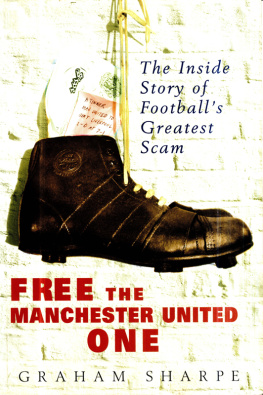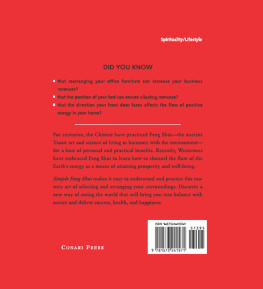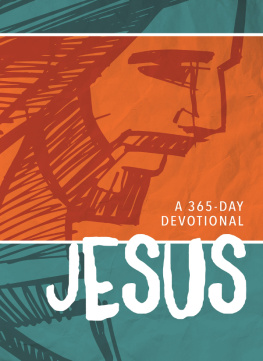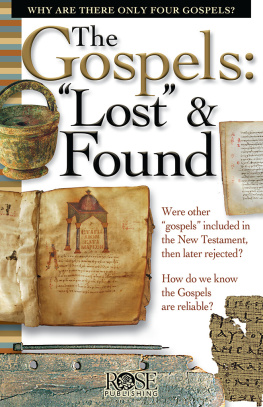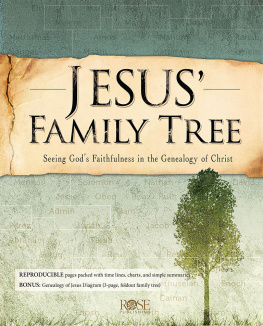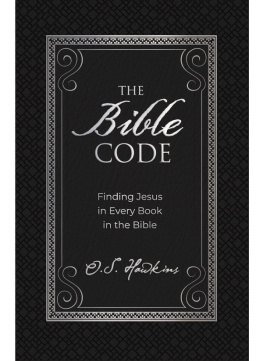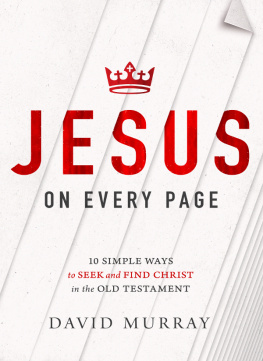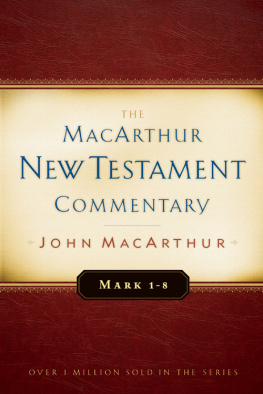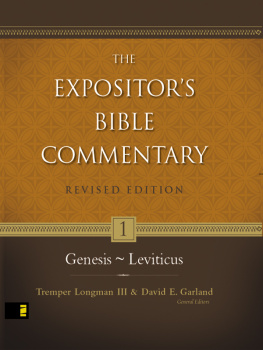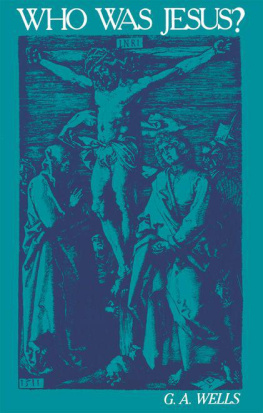Acknowledgements
I should like to thank all the friends and colleagues who in many and various ways have supported me in the writing of this book. I am grateful to Dr Ruth Cowl of the Open University for help in researching chapter A11. I would like also to put on record my admiration for the theological scholars whose work is described and cited in the text. Thanks to their creativity and insight, the ideological bias of so much church teaching is being unmasked, and thereby the essential inclusiveness of a supposedly anti-gay Bible is being significantly recovered. In particular I would like to pay special tribute to the work of Theodore W Jennings Jr, whose brilliant exegesis of both Old and New Testaments has revealed the extent to which homoerotic sentiment runs through the entire Bible. His seminal and groundbreaking work permeates the analysis offered here, especially in the Affirmative Testament. I hope that this book will further popularise Jennings enormous contribution to contemporary Biblical scholarship, and in so doing help to achieve his aim, stated in the preface to his excellent book, Jacobs Wound, of relieving the wholly unwarranted spiritual agony that afflicts so many gay Christians worldwide.

Select Bibliography
Ackroyd, P (1971) The First Book of Samuel, Cambridge, Cambridge University Press
Alison, J (2003) On Being Liked, London, Darton, Longman and Todd
Alison, J (2010) Broken Hearts New Creations: Intimations of a Great Reversal, London, Darton, Longman and Todd
Beardsley, C (2009) Unutterable Love, Cambridge, Lutterworth Press
Boswell, J (1980) Christianity, Social Tolerance and Homosexuality: Gay People in Western Europe form the Beginning of the Christian Era to the Fourteenth Century, Chicago Press
Bates, S (2004) A Church At War, London, IB Tauris
Boswell, J (1994) Same-Sex Unions in Premodern Europe, New York, Villard Books
Brooten, BJ (1996) Love Between Women: Early Christian Responses to Female Homoeroticism, University of Chicago Press
Butler, J (1990) Gender Trouble: Feminism and the Subversion of Identity, London, Routledge
Church of England House of Bishops (2003) Issues in Human Sexuality: A Guide to the Debate, Church House Publishing
Comstock, GD (1993) Gay Theology Without Apology, Cleveland, The Pilgrim Press
Countryman, LW (1988) Dirt, Greed and Sex: Sexual Ethics in the New Testament and their Implications for Today, Philadelphia, Fortress Press
Congregation for the Doctrine of the Faith (1986) Letter to the Bishops of the Catholic Church on the Pastoral Care of Homosexual Persons, London, Catholic Truth Society
Evangelical Alliance (1999) Faith, Hope and Homosexuality
Fry, S (1993) Paperweight, London, Heinemann
Furnish, VP (1979) Homosexuality. In the Moral Teaching of Paul Nashville: Abingdon Press, pages 52-83
Goss, R (1993) Jesus Acted Up: A Gay and Lesbian Manifesto, Harper San Francisco
Groddeck, GW The Book of the It, New York, Vintage Press
Hanway, DG (2006) A Theology of Lesbian and Gay Inclusion, London, Haworth Press
Hare, J (2007) Neither Male or Female: the case of intersexuality, in Dormor, D and Morris, J (Eds) An Acceptable Sacrifice? Homosexuality and the Church, London, SPCK
Helminiak, D (2000) What the Bible Really Says about Homosexuality, Alamo Square Press
Hollenbach, P (1981) Jesus, Demoniacs, and Public Authorities: A Socio-historical Study, Journal of the American Academy of Religion 49 (1981) p 573
Horner, T (1978) Jonathan Loved David: Homosexuality in Biblical Times, Philadephia, Westminster Press.
Jennings, T W (2003) The Man Jesus Loved, Cleveland, The Pilgrim Press
Jennings, T W (2009) Jacobs Wound: Homoerotic Narratives in the Literature of Ancient Israel, Cleveland, The Pilgrim Press
John, J (2001) The Meaning in the Miracles, Norwich, Canterbury Press
John, J (1993) Permanent, Faithful, Stable London, Darton, Longman and Todd
Johnson, DA (1983) Women in English Religion 1700-1925 New York and Toronto, Edwin Mellon Press
Jordan, M (2000) The Silence of Sodom: Homosexuality in Modern Catholicism, University of Chicago Press
Jordan, M (2002) The Ethics of Sex , Oxford, Blackwell
Loughlin, G (2007) Queer Theology: Rethinking the Western Body, London, Wiley Blackwell
Marks, J (2008) Exchanging the Truth of God for a Lie, London, Courage UK
Martin, D (2006) Sex and the Single Saviour, Westminster, John Knox Press
McNeil, J (1976) The Church and the Homosexual, London, Darton, Longman and Todd
McNeil, J (1988) Taking a Chance on God, Boston, Beacon Press
McNeil, J (1995) Freedom, Glorious Freedom, Boston, Beacon Press
Moore, G (2003) A Question of Truth, London and New York, Continuum
Scroggs, R (1983) Homosexuality in the New Testament: Contextual Background for Contemporary Debate, Philadelphia, Fortress Press
Stuart, E (2003) Gay and Lesbian Theologies: Repetitions with Critical Difference, Aldershot, Aldgate Press
Thatcher, A (2008) The Savage Text, Oxford, Wiley Blackwell
Trible, P (2003) Texts of Terror, London SCM Press
Vasey, M (1995) Strangers and Friends: A New Exploration of Homosexuality and the Bible, London, Hodder and Stoughton
Veyne, P (1985) Homosexuality in Ancient Rome, in Aries and Bejin (Eds) Western Sexuality, Blackwell, Oxford
Wilson, N (1995) Our Tribe: Queer Folks, God, Jesus and the Bible, Harper San Francisco
The Defensive Testament Chapter D1
The Story of Sodom
Sodomites
I invite you to think about the word sodomite. It may have a slightly old fashioned ring but consider how potent the word sodomite still is. To be a sodomite is to be a complete outcast. To be a sodomite is to be the epitome of evil and wickedness, utterly deserving of Gods wrathful vengeance, punishment and annihilation. The word even now is virtually unspeakable.
People feel uncomfortable hearing or seeing it.
People believe that sodomite means homosexual.
People believe that Sodom and Gomorrah were destroyed by God because the Sodomites who lived there indulged in homosexual practices. People believe this because it is what the Christian churches have told them.
But there are strong grounds for believing that what the Christian churches have told them is not true.
Abrahams hospitality is rewarded
The story starts in Genesis chapter 18 with God appearing to Abraham mysteriously in the form of three strangers. Abrahams response to the strangers unexpected arrival is to be extraordinarily welcoming: When he saw them, he ran to meet them from the tent door, and bowed himself toward the ground. Genesis 18:2.
He then invites them in and tells his wife to give them the very best food in the house. In the Genesis verses we are given a lot of details about just how wonderful this food is. The strangers are not just to be fed but to be offered a royal feast.
Abraham is the very model of humility and hospitality. And because of this the strangers tell him that he is to be rewarded with the promise that his wife will bear him a son, despite the fact that both of them are old and well stricken in age.
Two of the strangers set out for Sodom
Two of the men then leave for the town of Sodom. The one remaining identifies himself as the Lord and explains that he has sent the other two, who are angels appearing as men, to find out if the town of Sodom is really as wicked as he has heard.
There then follows a fascinating conversation between Abraham and the remaining stranger, the Lord. Abraham asks if everybody in Sodom will be destroyed if it is found to be truly wicked. He is concerned that the righteous will perish with the wicked. There could for example be fifty righteous men. Surely it is not right that they should be killed alongside the unrighteous? The Lord agrees he would spare Sodom if fifty righteous men could be found there. But suppose there were only forty-five? asks Abraham. No, the Lord would spare the city if there were forty-five righteous men. Abraham pushes the point. Forty? Thirty? Twenty? Ten? The Lord agrees that Sodom would not be destroyed if there are ten righteous men. Notice though that the concern of both Abraham and the Lord is only with men. Neither seems bothered that all the women might be righteous and yet will be destroyed.


